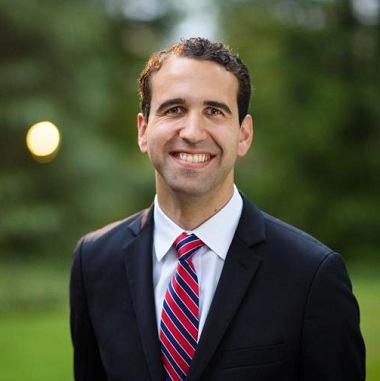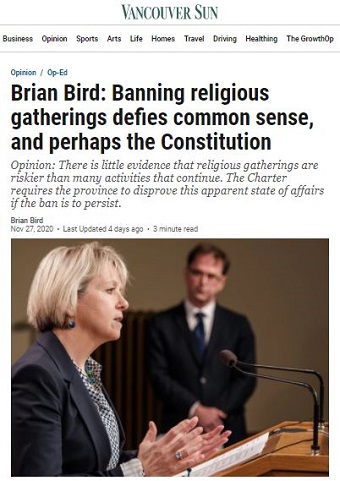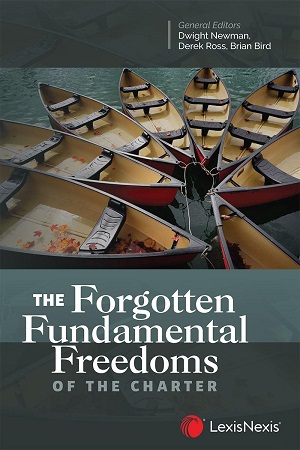
Brian Bird says the government must demonstrate respect for its partners in the fight against COVID-19.
This is an awkward time to question the validity of public health orders which prevent faith groups from gathering, given the spike in COVID-19 cases.
News of three churches opening their doors last Sunday has elicited much negative comment from the public, including from some church leaders (see accompanying story).
But when law professor Brian Bird made the case against banning religious gatherings in the Vancouver Sun last week, he was not simply reacting to current pandemic restrictions; he was building on work he has been undertaking for some time.
Bird, newly appointed this fall as assistant professor at the Peter A. Allard School of Law at UBC, offered some context as we consider the BC government’s approach.
He said in his comment:
It is difficult to understand why physically distant and numerically limited worship is now banned while sports, shopping and dining continue. How religious gatherings could be more problematic than these activities defies common sense and demands an explanation.
 The need for an explanation is urgent, as religious freedom is specifically protected by the Charter of Rights and Freedoms.
The need for an explanation is urgent, as religious freedom is specifically protected by the Charter of Rights and Freedoms.
While Charter rights and freedoms may be limited if there is justification to do so, more is required than a generic statement that there is transmission of COVID-19 in religious circles.
How much transmission is occurring in these circles? How does it compare to activities that remain permissible? On what grounds does the province believe that it can severely restrict this Charter freedom across the board?
These questions have not been answered, and that is troubling in a constitutional democracy. The fact that public officials seem to rarely acknowledge that many of the public health rules are serious infringements of our constitutional rights and freedoms, even though these infringements have often been justifiable, is troubling, too.
The Constitution remains the supreme law of Canada during a pandemic. Even the slightest suggestion that it has become an afterthought for government decision-makers undermines the rule of law in our society.
Go here for the full article.
Bird knows what he is talking about. He made significant contributions to a valuable series of videos on The Forgotten Freedoms of Section 2 of the Charter released earlier this year.
Co-presented by the Christian Legal Fellowship (CLF) and the Forgotten Freedoms Project, the series “explores fundamental freedoms which have been largely overlooked in Canada.”
This is section 2 of the Canadian Charter of Rights and Freedoms:
Fundamental Freedoms
2. Everyone has the following fundamental freedoms:
(a) freedom of conscience and religion;
(b) freedom of thought, belief, opinion and expression, including freedom of the press and other media of communication;
(c) freedom of peaceful assembly; and
(d) freedom of association.
The four Forgotten Freedoms videos (and an introductory video) address these issues one by one. These videos are each quite short, between six and 12 minutes, and are well worth the time of anyone with any kind leadership role in a church or ministry.
 Bird was also one of three co-editors of a book released in October: The Forgotten Fundamental Freedoms of the Charter (LexisNexis, 2020).
Bird was also one of three co-editors of a book released in October: The Forgotten Fundamental Freedoms of the Charter (LexisNexis, 2020).
Bird and his partners in the Forgotten Freedoms projects demonstrate that raising issues of religious freedom, including the right to assembly, was always going to be awkward – because they have been so neglected.
Bird concluded his Vancouver Sun article with these words:
Dr. Bonnie Henry has rightly said that we are in this fight together – that we must, united as a society, confront this pandemic.
But to answer this call, all of us must first view ourselves as respected members of this society – as meaningfully visible to our government. This may now be a tall order for many persons of faith in this province, and we are all worse off as a result.
Churches (and other faith groups) have been overwhelmingly supportive of Dr. Bonnie Henry and provincial restrictions. It remains to be seen whether the province will provide an adequate response to Brian Bird’s polite challenge, and to those of the Catholic church, the petitions calling for re-opening and the handful of churches that have decided to meet in person. All these have raised issues of religious freedom and the right to assemble as they question or resist the rules.
André Schutten, a constitutional lawyer and Director of Law & Public Policy with ARPA Canada (a Canadian Christian advocacy organization rooted in the Reformed tradition), also wrote an article questioning pandemic restrictions: What legal rights do Canadian governments have to restrict assemblies?

[…] Should we advocate for our place in society? Absolutely! Dr. Brian Bird at the Peter A. Allard School of Law at UBC has made a very good case that provincial restrictions on religious gatherings should cause us – and them – to reflect on the Forgotten Fundamental Freedoms of the Charter). […]
I get very depressed by not being allowed to worship on the Sunday; this has been a part of my life for 74 years. I also see the big box stores open, and gyms and restaurants. When we were allowed only a percentage I know of no one who got Covid. Open up the churches so that we can worship again together.
Very good points! Forbidding in person religious gatherings while permitting gyms and restaurants to remain open seems discriminatory and disrespectful. Politely cancelling religious services is still disrespectful of faith leaders and congregants who believe gathering and worshipping face to face is essential for their spiritual and physical well being! It is just as important to a believer as a workout is to an athlete.